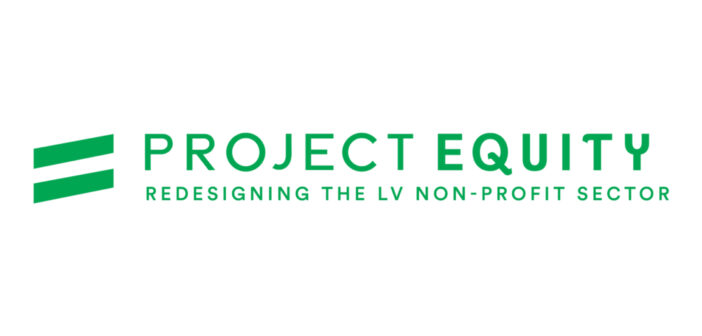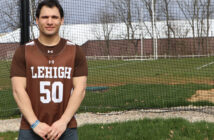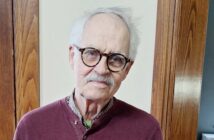The United Way of the Greater Lehigh Valley, the Lehigh Valley Community Foundation and Faces International have joined forces to launch Project Equity, an initiative aimed to make Lehigh Valley’s nonprofit sector as equitable and sustainable as possible.
The project is managed by the United Way of the Greater Lehigh Valley and the Lehigh Valley Community Foundation.
The lead consultant is Faces International and the Learning and Evaluation consultant is TCC Group. The initiative largely focuses on social justice.
The United Philanthropy Forum’s Momentum Fund, a national funding source that provides help to community organizations and donor contributions to COVID-19 relief efforts, supports the project launch.
The goals for Project Equity are to find a shared vision of solutions to community disparities in the Lehigh Valley, and then format nonprofit operations accordingly to ensure equal opportunities and resource access.
Driving deeper relationships between nonprofits and community members has proved crucial as the project progresses.
The initiative consists of four phases: Phase one—Community Wide Launch; Phase two–Learn & Discover; Phase three—Community Co-Designing; and Phase four—Share & Act.
Phase one involves the creation of a design team. This force consists of 35 people representing nonprofits, system stakeholders and communities that were invited to apply or directly invited to participate.
These people took part in discussion sessions in December 2020 to prepare for future planning.
The plan for Phase two is for the design team to share their experiences with local nonprofits and address responses in the community to racial injustice, COVID-19 and economic inequality.
Leaders of the project have found there needs to be more representation of BIPOC in Lehigh Valley leadership positions.
Currently, the team is wrapping up Phase three, according to Megan Briggs, the director of Community Investments for the Lehigh Valley Community Foundation and a Project Equity strategic response team member.
Marc Rittle, executive director of New Bethany Ministries, explained that the community was invited to apply after phase one.
Since then, he has contributed to phases 2 and 3.
According to Rittle, project participants were divided into two cohorts: one being mainly POC and the other largely consisting of white leaders of nonprofits.
In December 2020, members met with only their groups for discussion.
From January to March 2021, the cohorts combined for two hours every Thursday to create a vision for how they could change the nonprofit sector.
Rittle described these meetings as “intensive sessions of dialogue.” These sessions aimed to share perspectives, realities and experiences from people of diverse backgrounds to encourage better allyship.
Rittle said he admired the long-term goal of transforming the nonprofit sector in the Lehigh Valley to better serve all people, but he also wants to create positive change within his own organization, New Bethany Ministries.
“New Bethany Ministries does a wonderful job serving the community, and I’m sure that there are things we can do to serve it even better,” Rittle said. “I think looking at our work through the lens of racial equity would be one way to do that.”
Megan Briggs, Director of Community Investments for the Lehigh Valley Community Foundation, said the vision of Project Equity changed as the process went on.
“What we realized is that our vision didn’t really focus on that personal transformation piece rather than a framework or just paper,” Briggs said. “So our vision of the process now is that we will together forge a path to personal transformation so that we can be in authentic relationships with each other across the racial divide as we decenter whiteness and center equity in the nonprofit sector of the Lehigh Valley.”
Briggs said letting go of initial expectations while taking on Project Equity allowed room for creativity and active listening so the plan could be formed as it progressed.
It became a priority to let experiences and realities shape the initiative’s action steps.
Dr. Fathima Wakeel, director of graduate programs and associate professor in the College of Health at Lehigh University, was invited by Briggs to join Project Equity due to a current study she is leading on COVID-19’s impact on the Lehigh Valley community, including Allentown, Bethlehem and Easton.
Wakeel initially reached out to Briggs in an effort to recruit from community organizations for her study last fall, since her work aimed to assess physical and mental health effects on the Lehigh Valley community.
Her work relates to assessing disproportionate impact during a crisis in the community.
“We were really trying to get to the underserved parts of the community to learn about the effects of the pandemic on people in vulnerable populations,” Wakeel said.
Dr. Hasshan Batts, director of Promise Neighborhoods of the Lehigh Valley, is a consultant on Project Equity, as well as on the board of five leaders of the Fund for Racial Justice and Equity, alongside Russell and Greene.
Batts brings personal experience to contribute to Project Equity.
Some of his family members have experienced job loss during the pandemic, so he said he can relate to community members who seek assistance under tough circumstances.
He finds Project Equity to be one of the more powerful initiatives he has been involved in.
Batts said the model of nonprofits is flawed, so he has addressed the belief people should be equipped with the tools they need to fulfill a high-level position to the best of their ability and to create opportunities for representation.
“They have to be ready to relinquish power,” Batts said. “People always talk about increasing opportunities, but never removing the barriers.”
Phyllis Alexander, project director of Leadership Without Limits,works alongside Batts.
Alexander has helped direct the implementation of Batts’ vision by supporting the implementation of the Leadership Without Limits project, a program of Promise Neighborhoods.
The two also are involved in Project Equity.
Alexander said Project Equity is taking off in the right direction in an effort to “reimagine Lehigh Valley’s nonprofit sector.”
“We need leaders that reflect the values and culture of the communities that they’re serving,” Alexander said.
She worked as a consultant in Phases two and three of Project Equity, as well, encouraging each member of the cohorts to speak up as “their full, authentic self.”
Alexander was able to guide cohort members and bring experience from working with the social sector, according to Briggs, as a system stakeholder.
“The Lehigh Valley, I believe, has increased the number of people who are centering their humanity,” Alexander said. “They are aware of whiteness and are being intentional about thinking creatively and freshly, and innovatively, about what centering equity and justice looks like.”
“I think ‘to show up,’ means that you not only internalize what an equity lens is in the work that you do, but that you also tell others and be an outward example of what that work is,” Rittle said. “That can only be done if you’re actively presenting yourself to be able to do that work.”






Comment policy
Comments posted to The Brown and White website are reviewed by a moderator before being approved. Incendiary speech or harassing language, including comments targeted at individuals, may be deemed unacceptable and not published. Spam and other soliciting will also be declined.
The Brown and White also reserves the right to not publish entirely anonymous comments.